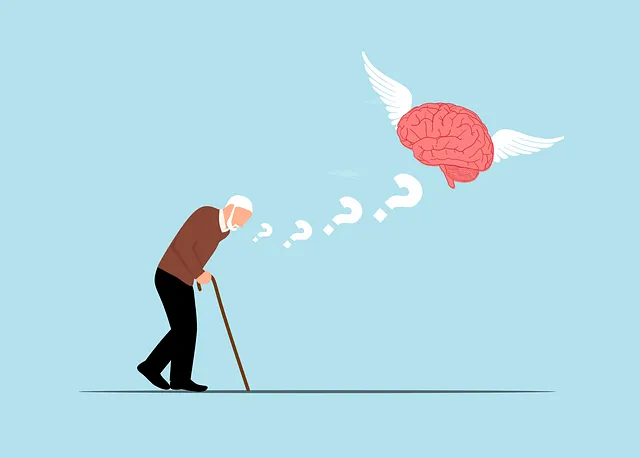Kaiser Permanente mental health Longmont emphasizes Social Skills Training, focusing on Emotional Intelligence (EI) to empower individuals managing mental health conditions. Through structured programs, they enhance communication strategies, mental health awareness, and self-care routines, improving social interactions, building relationships, and reducing isolation. Their holistic approach combines mindfulness, positive thinking, support groups, and community engagement to foster confidence, improve quality of life, and promote proactive mental wellness.
Social skills training is a powerful tool for managing mental health conditions, fostering meaningful connections, and improving overall well-being. This comprehensive guide explores how structured programs can help individuals navigate social challenges. We delve into the impact of social skills on mental health, highlighting initiatives like Kaiser Permanente Longmont’s holistic approach. By understanding common interaction hurdles, learning confidence-building strategies, exploring support groups, and engaging with communities, individuals can enhance their social lives and mental resilience.
- Understanding Social Skills and Mental Health Impact
- Kaiser Permanente Longmont: A Holistic Approach
- Identifying Challenges in Social Interactions
- Strategies for Building Social Confidence
- Support Groups and Community Engagement
Understanding Social Skills and Mental Health Impact

Social skills are essential aspects of our daily lives, enabling us to connect with others, communicate effectively, and build meaningful relationships. For individuals managing mental health conditions, navigating social interactions can be particularly challenging. Many common mental health disorders can impact an individual’s ability to understand social cues, express emotions, and engage in conversations, leading to feelings of isolation and loneliness.
At Kaiser Permanente mental health Longmont, we recognize the profound effect that social skills training can have on improving mental well-being. Emotional Intelligence (EI), a key component of social skills, involves recognizing and managing one’s own emotions as well as understanding and empathizing with others. Developing EI through structured programs has been shown to enhance Mental Health Awareness and facilitate Self-Care Routine Development for Better Mental Health. By learning effective communication strategies and improving their ability to connect with others, individuals can build resilience, foster supportive relationships, and ultimately improve their overall mental health outcomes.
Kaiser Permanente Longmont: A Holistic Approach

Kaiser Permanente Longmont takes a holistic approach to mental health care, recognizing that addressing social skills is integral to overall well-being. They offer specialized training programs designed to empower individuals with mental health conditions to navigate social interactions more effectively. This comprehensive strategy includes education on emotional intelligence and communication strategies tailored to each client’s unique needs.
By integrating these skills, Kaiser Permanente Longmont helps patients build confidence in their ability to connect with others, fostering a sense of community and support. Their approach goes beyond traditional therapy by focusing on practical, real-world applications, ensuring that individuals can successfully manage social challenges and improve their mental health outcomes.
Identifying Challenges in Social Interactions

Many individuals struggling with mental health conditions face unique challenges when it comes to social interactions. Kaiser Permanente mental health Longmont recognizes that these challenges can significantly impact a person’s overall well-being and daily functioning. Conditions such as anxiety, depression, or trauma can make social situations overwhelming, leading to avoidance or withdrawal from social activities. This isolation can further exacerbate symptoms and hinder the development of meaningful relationships.
Social skills training is an essential component of holistic mental health care, addressing these challenges through various techniques. Mental Wellness Coaching Programs focus on teaching individuals effective communication strategies, emotional regulation skills, and assertive behaviors to navigate social environments more confidently. By promoting emotional well-being, these programs aim to prevent burnout and foster a sense of belonging, ultimately contributing to improved quality of life for those managing mental health conditions.
Strategies for Building Social Confidence

Building social confidence is a crucial aspect of recovery for individuals managing mental health conditions. Strategies such as mindfulness meditation and positive thinking can help reduce anxiety and improve overall well-being, making it easier to engage in social interactions. Kaiser Permanente mental health Longmont offers specialized programs that teach coping skills development tailored to each individual’s unique needs. These programs empower folks with the tools necessary to navigate social situations comfortably and confidently.
One effective approach is to start small, setting achievable goals like initiating a conversation with a neighbor or joining a local support group. Gradually increasing exposure to social settings allows for a sense of control and builds resilience. Additionally, practicing active listening and empathy fosters meaningful connections while reducing feelings of isolation. By combining these techniques with regular practice, individuals can enhance their social confidence and improve their overall quality of life.
Support Groups and Community Engagement

Support Groups and Community Engagement play a pivotal role in enhancing mental wellness for individuals managing conditions like those served by Kaiser Permanente mental health Longmont. These groups provide a safe, supportive environment where members can share experiences, gain insights from peers, and learn valuable skills in stress management and mood regulation. Engaging with the community through such initiatives fosters a sense of belonging and connection, which is crucial for improving mental health.
Additionally, participating in community activities offers structured opportunities for practicing newly acquired social skills. Whether it’s joining support groups that cater to specific mental health concerns or engaging in local events, these platforms encourage active participation, thereby bolstering confidence and promoting a proactive approach towards mental wellness. The guidance offered through Kaiser Permanente mental health Longmont, including mood management and stress management techniques, is further strengthened by the camaraderie and encouragement found within support groups and community settings.
Social skills training is a valuable tool for individuals with mental health conditions, as it equips them with the necessary tools to navigate social interactions more confidently. As discussed, programs like those offered by Kaiser Permanente Longmont take a holistic approach, addressing the unique challenges faced by each individual. By combining strategies tailored to their needs, support groups, and community engagement, these training programs foster growth and enhance overall well-being. For anyone seeking improved mental health and stronger social connections, exploring such initiatives could be a transformative step forward.






